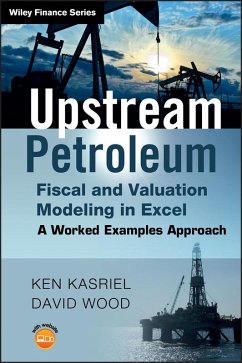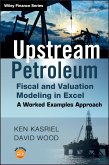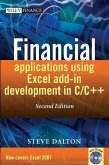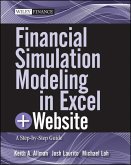Please contact the authors at upstream.petroleum.in.excel@gmail.com for details of how to access the trial version of Crystal Ball, as well as the Excel and other files which are *not* part of the e-book version download. "This is a book no deal team should be without. It is a must for those involved in upstream oil and gas transactions, planning, budgeting, investment appraisal and portfolio management. Its step-by-step approach cuts through complexity, making it comprehensive and understandable by a wide range of users with a wide range of abilities. It can be used as a textbook, an introductory primer or as a handbook that you can dip in and out of or read cover to cover." --Michael Lynch-Bell, Senior Advisor, Oil & Gas, Ernst & Young LLP; ex-officio Chairman, UN Expert Group on Resource Classification In the upstream petroleum industry, it is the value of post-tax cashflows which matters most to companies, governments, investors, lenders, analysts, and advisors. Calculating these cashflows and understanding their "behavior," however, is challenging, as the industry's specialized fiscal systems can be complex, jargon-laden, and sometimes seem to be a "world of their own". Upstream Petroleum Fiscal and Valuation Modeling in Excel: A Worked Examples Approach demystifies fiscal analysis which, unlike disciplines such as Earth sciences and engineering, can be learned from a book. Written in plain English for laymen and for experienced practitioners alike, it is a reader-friendly, clear, practical, step-by-step hands-on guide for both reference and self-paced study. The book does not catalogue the 100+ different petroleum fiscal regimes in use at the time of writing. Rather, drawing on the authors' combined 48 years' experience, it takes a more timeless, generic treatment, by covering the most common variants of royalties, taxation, production sharing arrangements, bonuses and abandonment funding , through a dual approach: first, showing how to model them in Excel , and then providing interactive exercises to prompt (and answer) questions that analyze impacts on cashflows. In addition to the main text, the book consists of over 120 Excel files (ranging from modular examples to full models) in Excel 2007 and 2003 formats; over 400 pages of supplementary PDF files; VBA features to enhance model functionality; and an introduction to risk modeling with exercises for the included trial version of Oracle's Crystal Ball software. It offers both a wealth of content and models equal to or surpassing what is available from fiscal modeling courses costing several times more; and greater insights into underlying calculations than commercially available "black box" fiscal software. New US Securities and Exchange Commission (SEC) rules planned for 2013 will force petroleum companies to disclose more fiscal information on an individual country basis. This will make it more important than ever for analysts to understand how to model oil and gas terms and the potential impacts of the disclosed government payments on future oil and gas company profitability. Due to the heavy use of graphics and cross references used in this particular text, some readers might find that the printed book offers a more optimal reading experience than certain e-formats particularly with the Kindle eMobi format.
Dieser Download kann aus rechtlichen Gründen nur mit Rechnungsadresse in A, B, BG, CY, CZ, D, DK, EW, E, FIN, F, GR, HR, H, IRL, I, LT, L, LR, M, NL, PL, P, R, S, SLO, SK ausgeliefert werden.









